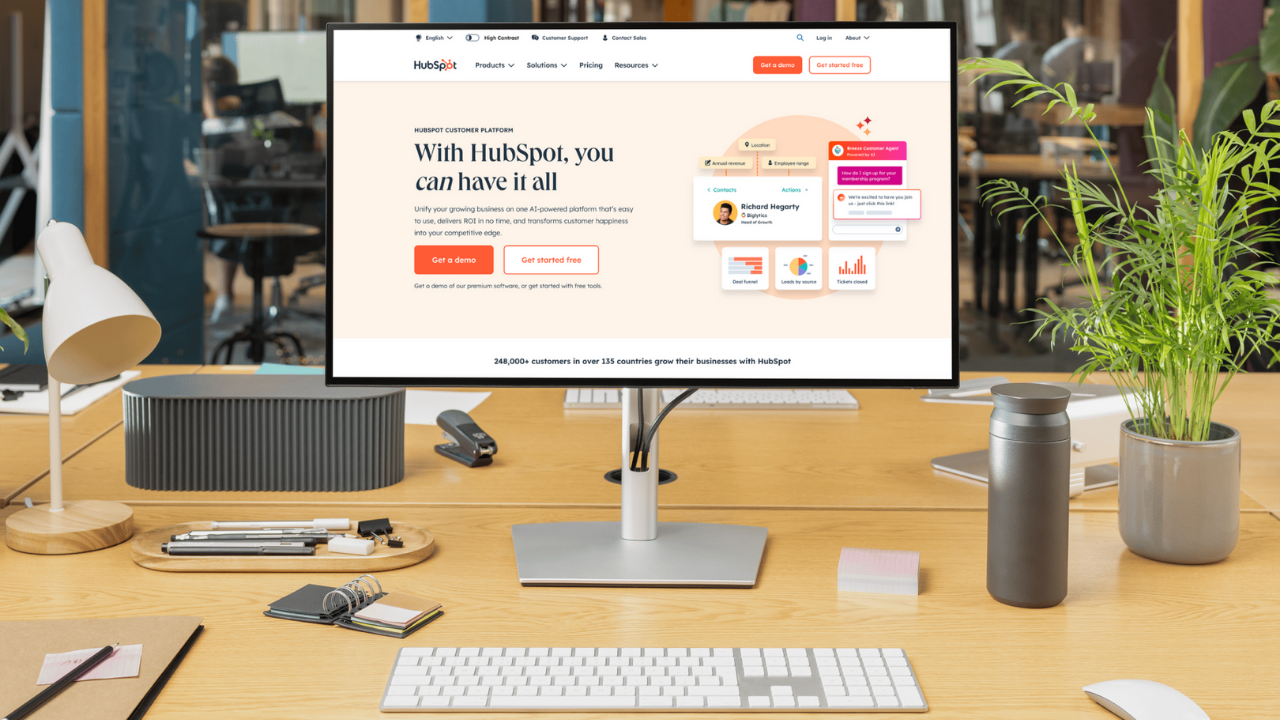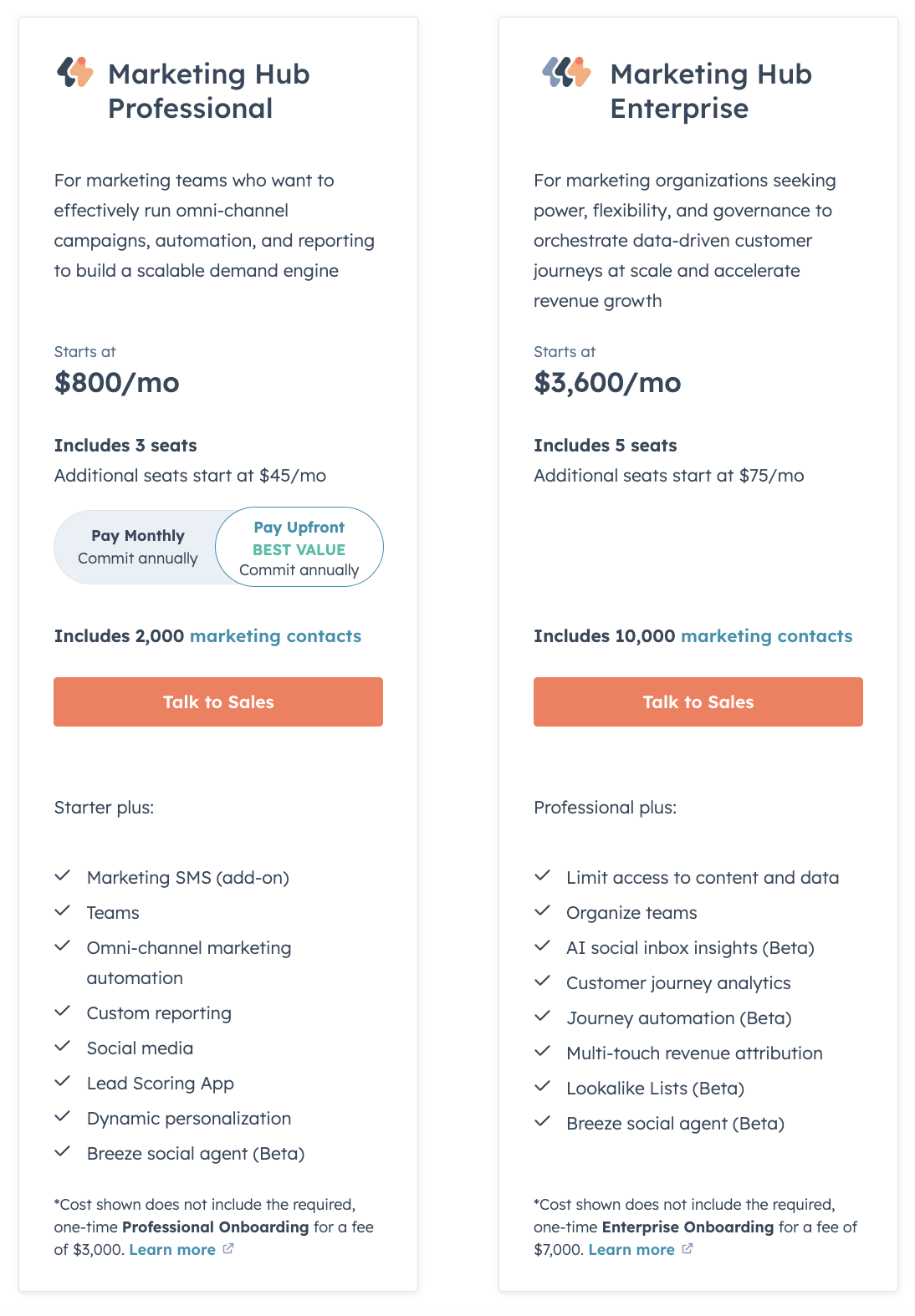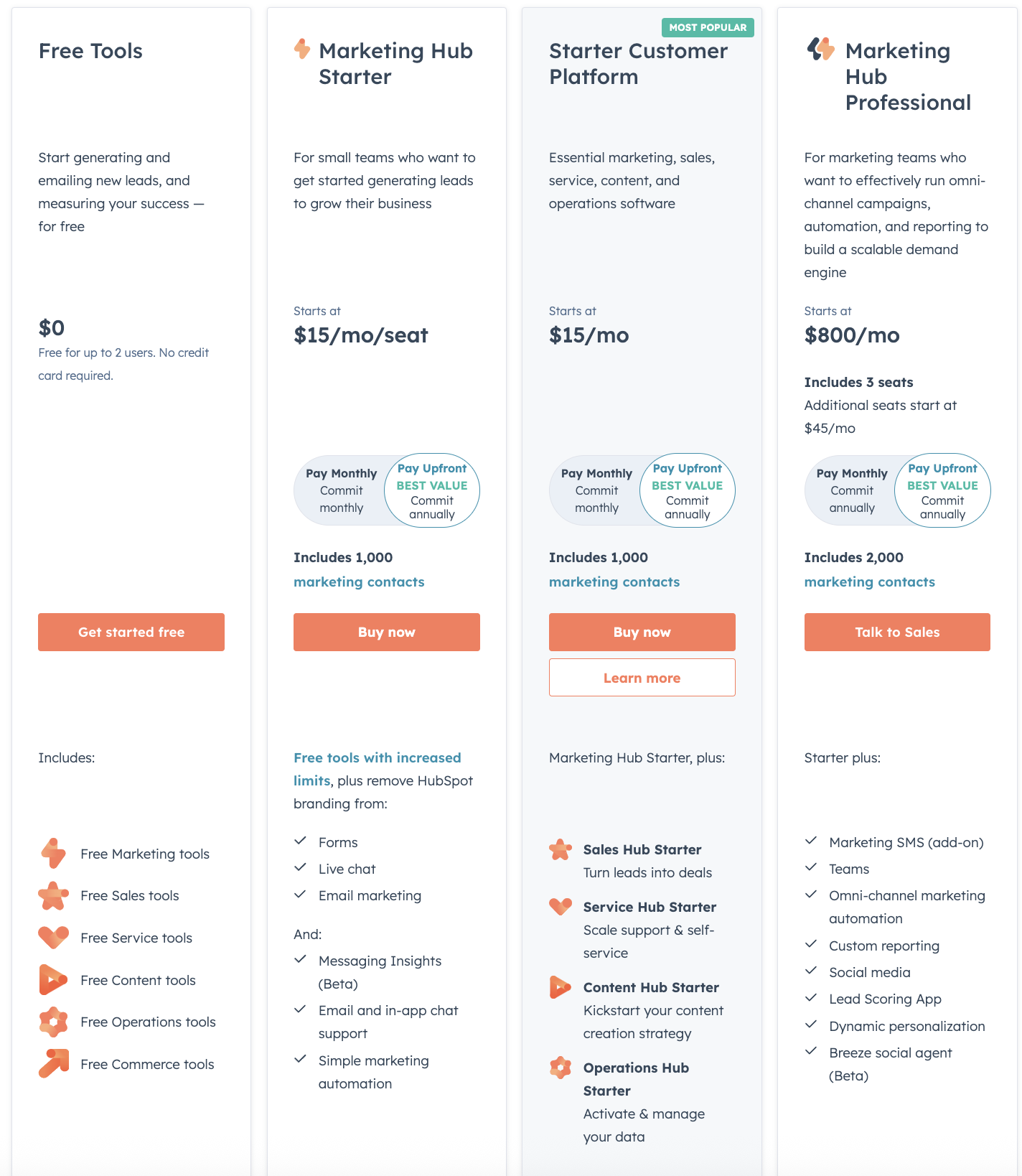
Everything You Need to Know About Hubspot Subscription Types
If you run a business, chances are you know that effective customer relationship management (CRM) and strategic email marketing are crucial to succeed in competitive markets. But let's be honest: the options can be overwhelming. How do you choose a CRM platform that has everything you need, and doesn't make you pay for things you don't? And even more importantly, how do you find one that doesn't cost an arm and a leg?
While ultimately each business owner has to choose what works best for them, a viable CRM that often checks most boxes for many entrepreneurs is Hubspot. This innovative platform offers a variety of subscription types designed to meet the diverse needs of businesses across different scales and industries.
At Homegrown, we love Hubspot because of its comprehensive features for email marketing contacts, customer communications, mailing lists, monthly newsletters, and tracking our lists of contacts. If you want to learn more and see if any Hubspot subscription types fit your needs, keep reading our comprehensive guide that explores the platform's intricacies and how businesses like yours can leverage it to optimize their marketing efforts while ensuring compliance with data privacy regulations.
Introduction to HubSpot Subscription Types
HubSpot's subscription multiple offerings are the foundation for managing customer relationships, automating marketing campaigns, and enhancing overall business efficiency. From startups to large enterprises, the platform provides scalable solutions that cater to varying business needs and growth stages. Understanding the nuances of each subscription type can empower your business to make informed decisions that align with your marketing objectives and operational requirements.
1. HubSpot Free Subscription
The HubSpot Free subscription serves as an entry-level option for businesses looking to establish a foundational CRM system without money up front. It offers essential CRM tools to manage contacts, track interactions, and execute basic email communications and marketing campaigns. While limited in features compared to higher-tier subscriptions, HubSpot Free provides valuable functionalities such as contact management, email templates, and basic reporting capabilities, and is a great entry-level email marketing tool.
Cost: This plan is free of charge and includes basic CRM features such as contact management and email marketing tools. It's suitable for small businesses and startups looking to get started with CRM without additional costs.
2. HubSpot Starter Subscription
Small to medium-sized businesses often find value in the HubSpot Starter subscription, which builds upon the features of the Free tier. This subscription level includes enhanced CRM capabilities, increased contact limits, and more advanced email marketing tools. Hubspot users can create segmented email campaigns and differentiate email subscription types, automate follow-ups based on user interactions, and gain insights into campaign performance through basic analytics. The Starter subscription is designed to help businesses scale their marketing efforts efficiently while maintaining cost-effectiveness.
Cost: Prices typically start around $15 per month. This plan expands upon the Free tier by offering enhanced CRM capabilities, increased contact limits, and more advanced email marketing tools.
3. HubSpot Professional Subscription
Mid-sized businesses and marketing teams benefit from the comprehensive features offered by the HubSpot Professional subscription. This tier provides advanced CRM functionalities, robust marketing automation tools, and extensive reporting capabilities. Features like A/B testing, personalized content creation, and automated workflows enable businesses to deliver targeted communications via email subscriptions, nurture leads effectively, and optimize marketing strategies based on data-driven insights. The Professional subscription is tailored to support complex marketing workflows and facilitate seamless collaboration across teams.
Cost: Prices usually start around $800 per month. The Professional plan includes comprehensive CRM functionalities, advanced marketing automation tools, and detailed reporting capabilities.

4. HubSpot Enterprise Subscription
Large enterprises with diverse marketing needs and global operations can leverage the HubSpot Enterprise subscription for enterprise-grade CRM solutions. This subscription tier offers advanced customization options, sophisticated security features, and dedicated support services. Enterprises can manage multiple teams, implement complex marketing automation workflows, and integrate HubSpot with other business systems seamlessly. Advanced analytics and reporting functionalities enable businesses to gain deep insights into customer behavior, optimize marketing campaigns, and drive growth at scale.
Cost: Prices typically start around $3200 per month. The Enterprise plan is designed for large enterprises and includes advanced customization options, robust security features, and dedicated support services.
5. HubSpot Custom Subscription
For businesses requiring tailored solutions to meet specific operational challenges or industry regulations, HubSpot offers Custom subscriptions. These subscriptions are highly customizable and can include specialized CRM configurations, additional support services, and personalized training programs. Custom subscriptions empower businesses to align their CRM strategies closely with their unique business objectives, regulatory requirements, and industry standards.
Cost: Custom pricing is available for businesses with specific needs requiring tailored solutions. Pricing for Custom subscriptions varies widely based on the scope of customization, additional features, and support services required.
Key Features and Functionalities Across Hubspot Subscription Types
Email Marketing Tools: No matter what package you choose, HubSpot provides robust email marketing tools across all subscription tiers, including customizable email templates, automated workflows, and detailed analytics. Your business can create personalized email campaigns, segment your audience based on behavior and demographics, and optimize campaign performance through A/B testing and performance metrics analysis.
Contact Management: Effective contact management is central to HubSpot's CRM capabilities. Businesses can maintain comprehensive contact records, manage contact properties such as type of email, email address, email preferences, and subscription status, and segment contacts based on various criteria. This enables your business to deliver targeted communications, tailor marketing efforts to specific audience segments, and enhance overall customer engagement.
GDPR Compliance: HubSpot prioritizes data privacy and compliance with global regulations such as GDPR. The platform includes built-in GDPR functionality to help businesses manage lawful bases for data processing, obtain explicit consent from contacts, and facilitate easy opt-in/opt-out mechanisms. By ensuring compliance with data privacy regulations, businesses can build trust with customers and maintain transparency in their data handling practices.
Automation and Workflows: Higher-tier HubSpot subscriptions offer advanced automation capabilities, allowing businesses to automate repetitive tasks, streamline marketing workflows, and deliver timely, personalized communications. Automated workflows triggered by user actions or contact properties enable businesses to nurture leads effectively, improve operational efficiency, and optimize resource allocation.
Utilizing Hubspot Subscription Preferences Pages
HubSpot enables your business to create customizable subscription preferences pages where contacts can manage their email preferences and communication settings. These pages empower users to opt-in or opt-out of specific types of emails, update their contact information, and adjust their communication preferences according to their preferences. By providing transparency and control over communication preferences, you can enhance user experience, improve engagement rates, and maintain compliance with data privacy regulations.
Best Practices for Email Marketing with HubSpot
Using Hubspot as a tool is your first step to marketing success. But it's important to maximize the effectiveness of email marketing campaigns by embracing these best practices:
-
Segmentation: Segment your audience based on demographics, behavior, or interests to deliver personalized content that resonates with recipients.
-
Personalization: Use dynamic content and personalized email templates to create tailored experiences for each recipient, increasing engagement and conversion rates.
-
Testing and Optimization: Conduct A/B testing to experiment with different subject lines, content formats, and send times to optimize campaign performance.
-
Compliance: Regularly review and update email subscription preferences to ensure compliance with legal regulations and user preferences. Provide clear opt-in and opt-out options to respect user consent and privacy rights.
HubSpot's diverse range of subscription types provides businesses of all shapes and sizes with the flexibility and scalability to enhance their CRM capabilities, automate marketing workflows, and achieve marketing success. Whether you're a startup, mid-sized company, or large enterprise, having a Hubspot account means access to solutions tailored to meet your specific business needs and growth objectives!
Do you need help with getting your marketing strategy up and running? Homegrown Collective would love to help! Check out our services here.


